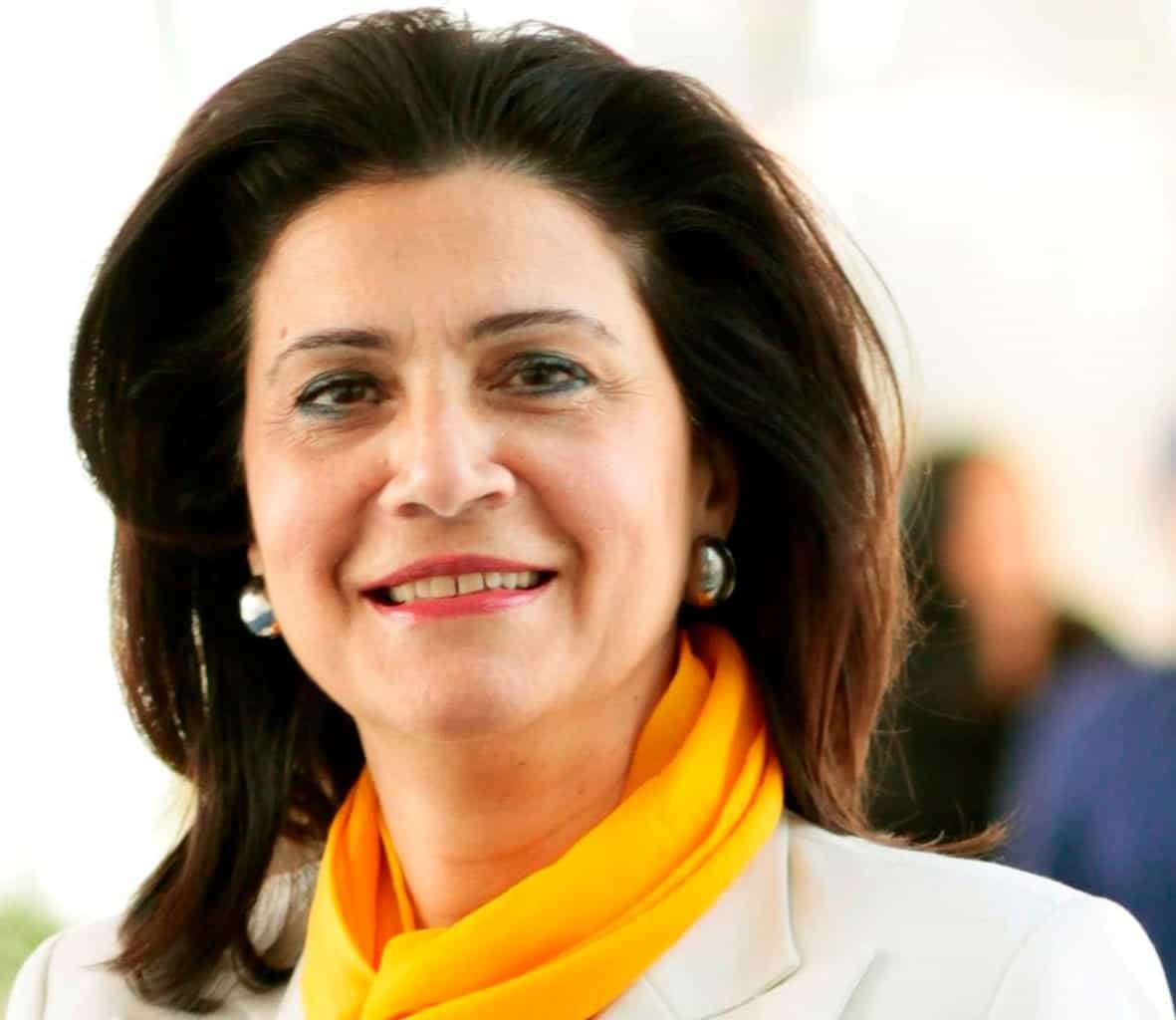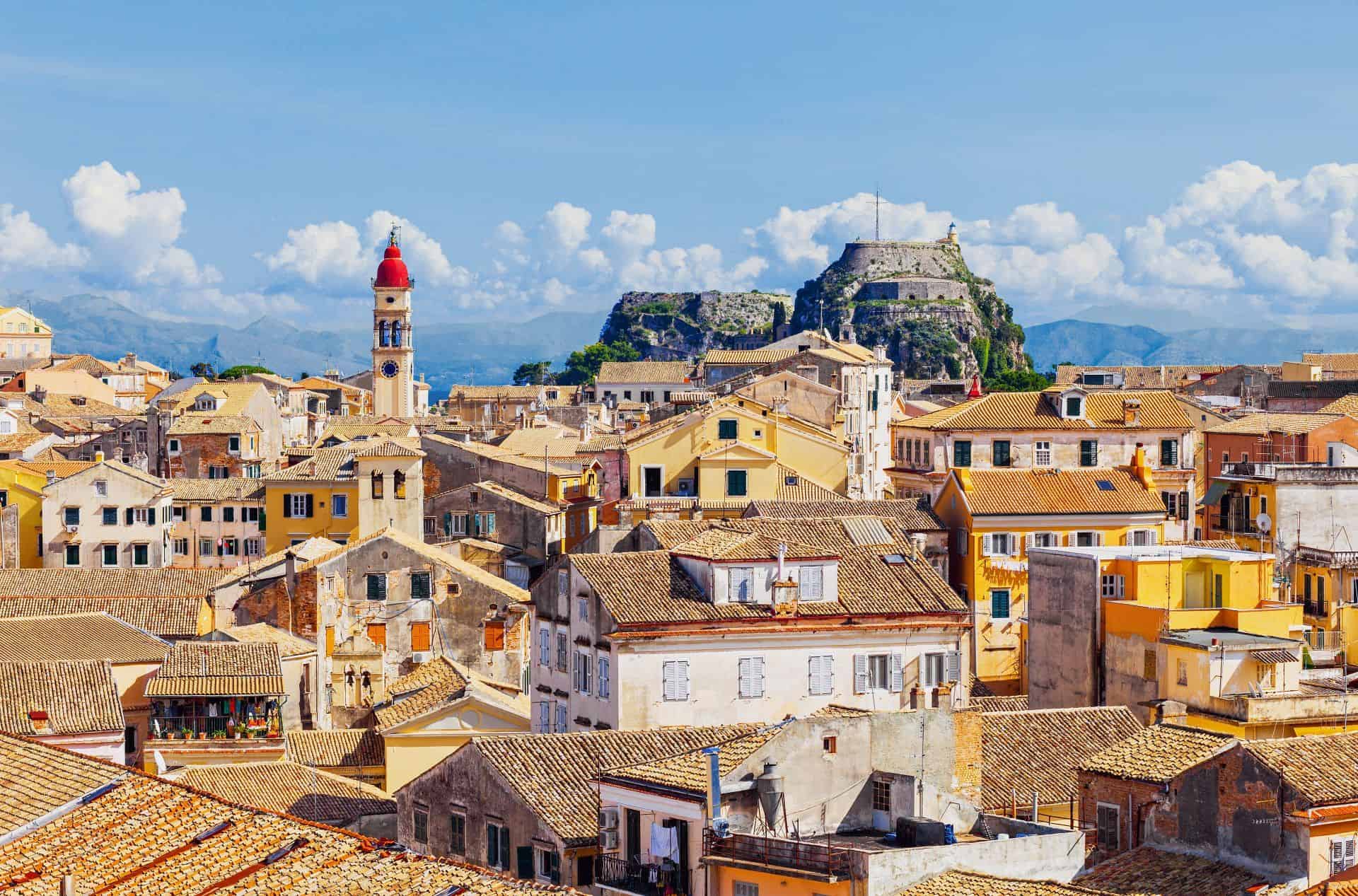The Ionian Islands of Greece, battered by the Covid pandemic, is turning to the UAE to lift its tourism sector, keen to develop cultural and tourism ties with the country.
It intends to organize cultural festivals and collaborate with universities, such as forming a partnership and an exchange program between Sharjah American University and Ionian University.
The UAE and the Ionian Islands have also established direct flights to the Ionian Islands from Abu Dhabi and Dubai on Etihad and Fly Dubai.

In an exclusive interview with ANFR and TRENDS, Rodi Kratsa-Tsagaropoulou, Mayor of Greece’s Ionian Islands, discussed the new reality of tourism in her country.
The Ionian Islands
It is a Greek island located west of the country between Greece and Italy, the governor explains. “It’s a magnificent archipelago.”
The Ionian Islands are composed of seven main islands on Greece’s western coasts, giving them the name “Seven Islands” or “Heptanese,” and other minor islands, including Sazan, the Diapontic Islands, the Echinades Islands, and the Strophades, from north to south.
The best known are: Corfu, Lefkada, Zakynthos, Zante, Ithaki, Paxi, Kastos.
“These islands have a multinational culture because they have their own historical trajectory,” she noted, referring to the fact that they were under Venetian, French, and then British rule until 1864.
The pandemic and the war
“The pandemic was a blow for us; we had to put a strategy to deal with this threat that appeared out of nowhere,” she explains.
“We decided to stay open as a tourist attraction. We organized ourselves even before the vaccine: how to safeguard ourselves, protect the health of guests and those who work in this industry, hotel operations, and we have done so.”
“We were able to organize ourselves very well, and we earned the respect of all of the world’s tourist agencies,” she proudly added.
As Ródi Krátsa-Tsagaropolou is aware, tourists are currently waiting to see “the latest developments in the pandemic and the war before booking their vacations at the last minute.
While these islands were expecting an exceptional tourism summer, “there is currently a pause not only due to Covid-19 but also because of the war in Ukraine”, she added.
Furthermore, vacation costs have risen dramatically worldwide, potentially affecting the high season.
The water issue in Expo 2020
As a governor, one of Mrs. Tsagaropoulou’s responsibilities is to promote tourism in her territory. “We have an openness policy at all exhibitions and world tourism events,” she said, adding that it’s vital to showcase our region to a big audience in an international environment where people come from all over the world. Dubai’s Expo 2020 is an example of this.
For her and for the islands she represents, Dubai Expo 2020 is “an outstanding event, and an exceptional opportunity to “promote our region” as being “a champion of tourism”, not only through figures but also as a region that seeks to establish sustainable tourism by supporting its environment,” explains Ródi Krátsa-Tsagaropoúlou.
“Dubai Expo is a global event with a distinction for organizing extraordinary international events,” she went on to say. “It’s a remarkable effort and exhibition that will always be remembered for its outstanding infrastructure and stunning pavilions.”
She also points out that even large modern tourism complexes can operate while preserving natural resources like water.
According to the governor, unlike the Gulf countries, the Greek islands do have reserves, but “we do not yet know how to develop them.” “We need to learn to manage rainfall, treat it, and put in place infrastructure to produce drinking water,” she continues, emphasizing that Greece is behind the curve in harnessing this natural resource. “Save the water we have as a resource,” we must say.








